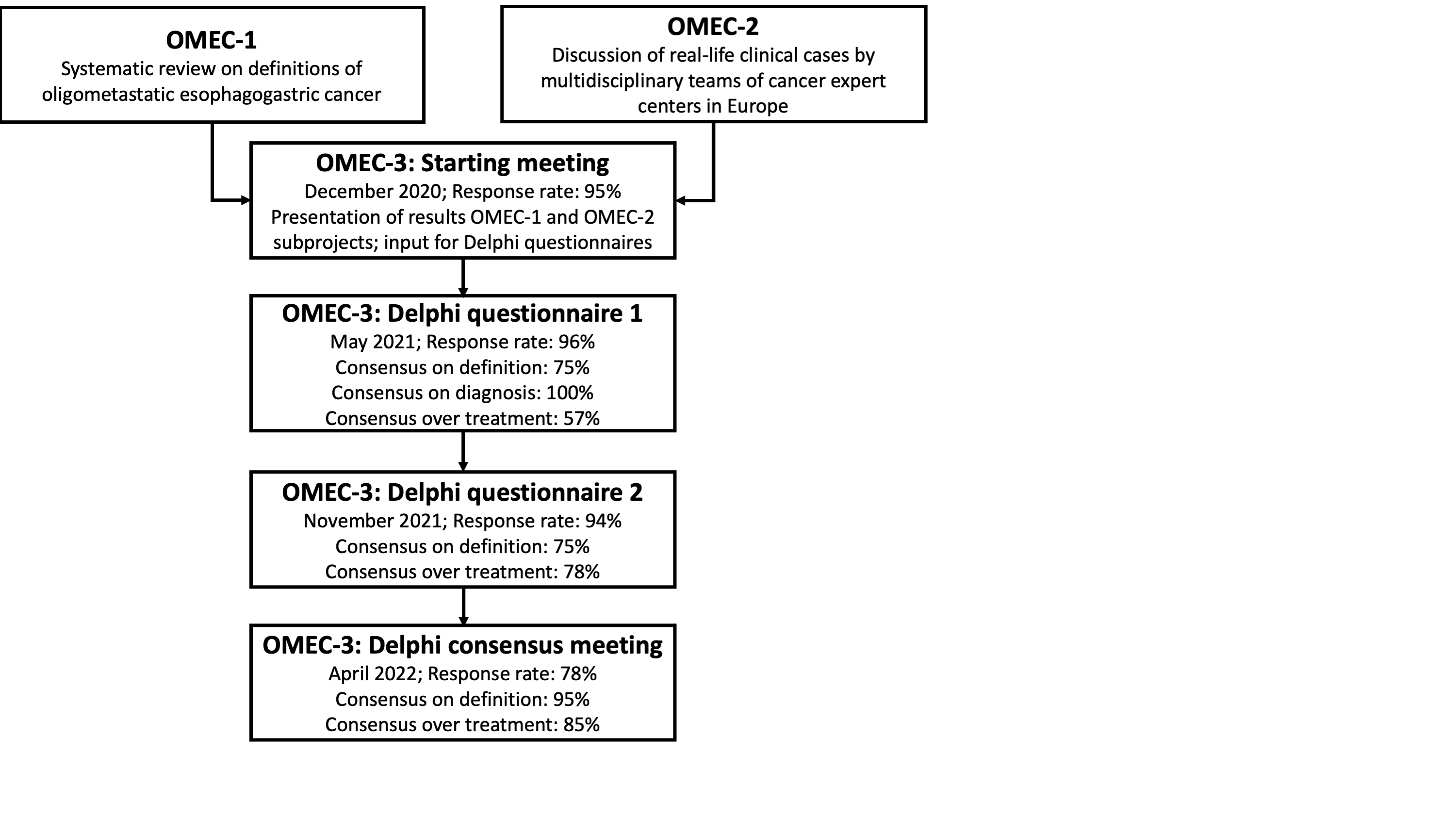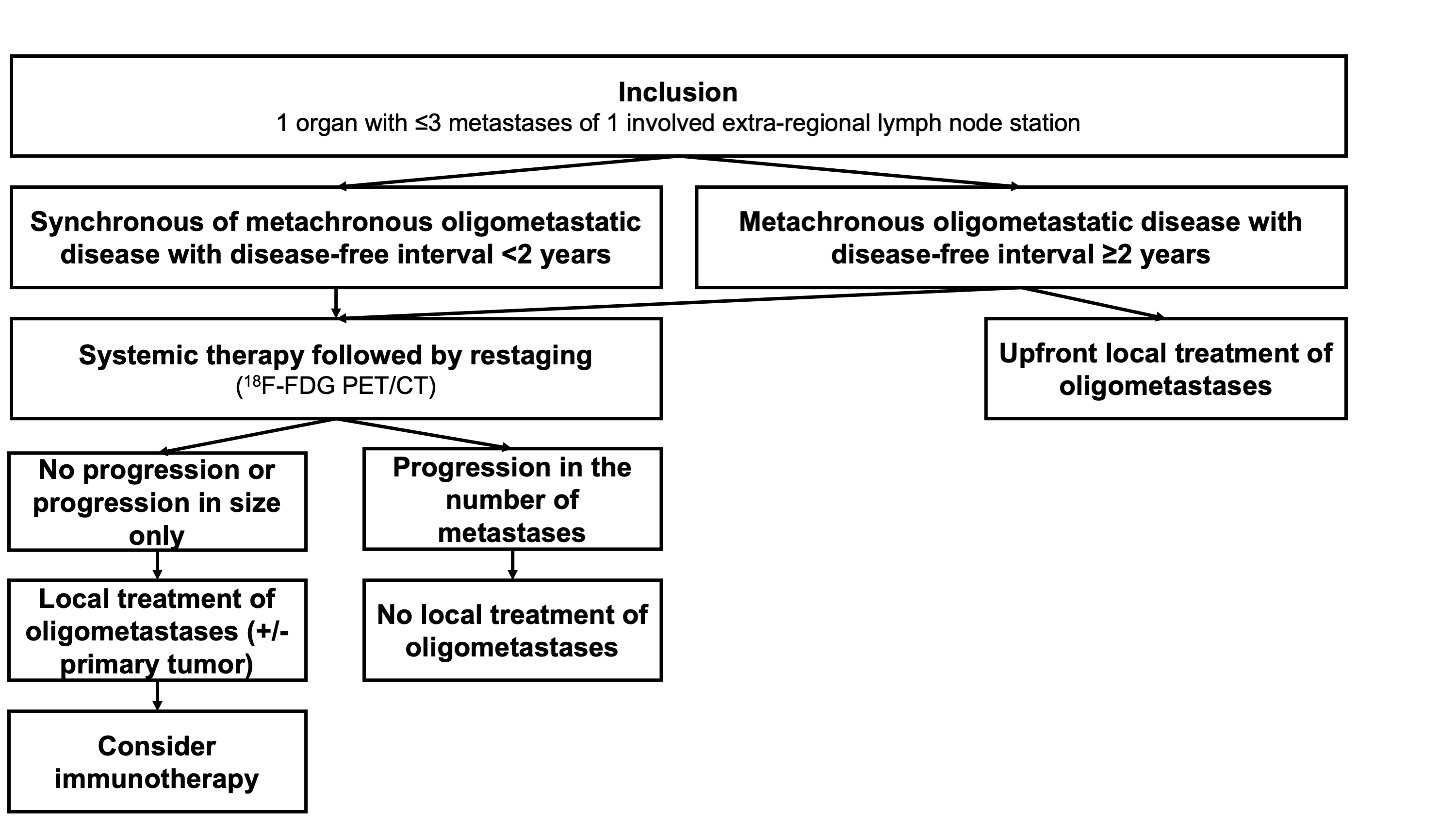Definition, diagnosis, and treatment of OligoMetastatic Esophagogastric Cancer (OMEC)
Tiuri Kroese,
Switzerland
PO-1362
Abstract
Definition, diagnosis, and treatment of OligoMetastatic Esophagogastric Cancer (OMEC)
Authors: Tiuri Kroese1, Hanneke van Laarhoven2, Richard van Hillegersberg3, Peter van Rossum4, OligoMetastatic Esophagogastric Cancer (OMEC) Expert5
1Univeristy Hospital Zurich, Radiation Oncology, Zurich, The Netherlands; 2Amsterdam University Medical Centers, Medical Oncology, Amsterdam, The Netherlands; 3University Medical Center Utrecht, Surgery, Utrecht, The Netherlands; 4University Medical Center Utrecht, Radiation Oncology, Utrecht, The Netherlands; 5OMEC, Consortium, Utrecht, The Netherlands
Show Affiliations
Hide Affiliations
Purpose or Objective
Local treatment improves outcomes for oligometastatic disease (OMD, i.e. an intermediate state between locoregional and widespread disseminated disease). However, consensus about the definition, diagnosis, and treatment of oligometastatic esophagogastric cancer is lacking. The aim of this study was to develop a multidisciplinary European consensus statement on the definition, diagnosis, and treatment of oligometastatic esophagogastric cancer.
Material and Methods
In total, 65 specialists in the multidisciplinary treatment for esophagogastric cancer from 49 expert centers across 16 European countries were requested to participate in this Delphi study. The consensus finding process consisted of a starting meeting, 2 online Delphi questionnaire rounds, and an online consensus meeting. Input for Delphi questionnaires consisted of 1) a systematic review on definitions of oligometastatic esophagogastric cancer; and 2) a discussion of real-life clinical cases by multidisciplinary teams. Experts were asked to score each statement on a 5-point Likert scale. The agreement was scored to be either absent/poor (<50%), fair (50%-75%), or consensus (≥75%).
Results
A total of 48 experts participated in the starting meeting, both Delphi rounds, and the consensus meeting (overall response rate: 71%). OMD was considered in patients with metastatic esophagogastric cancer limited to 1 organ with ≤3 metastases or 1 extra-regional lymph node station (consensus). In addition, OMD was considered in patients without progression at restaging after systemic therapy (consensus). For patients with synchronous or metachronous OMD with a disease-free interval ≤2 years, systemic therapy followed by restaging to consider local treatment was considered as treatment (consensus). For metachronous OMD with a disease-free interval >2 years, either upfront local treatment or systemic treatment followed by restaging was considered as treatment (fair agreement).


Conclusion
The OMEC project has resulted in a multidisciplinary European consensus statement for the definition, diagnosis, and treatment of oligometastatic esophagogastric cancer. This can be used to standardize inclusion criteria for future clinical trials.